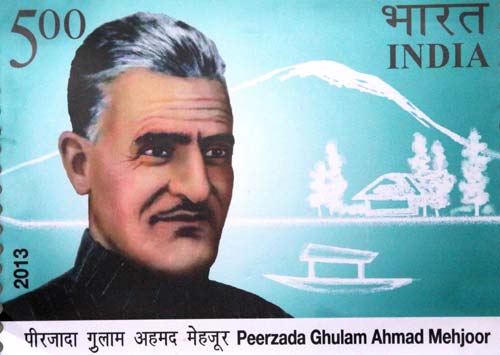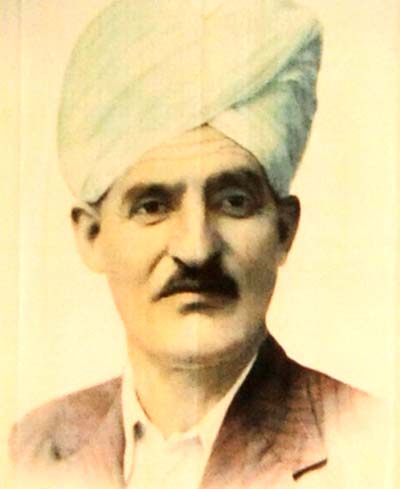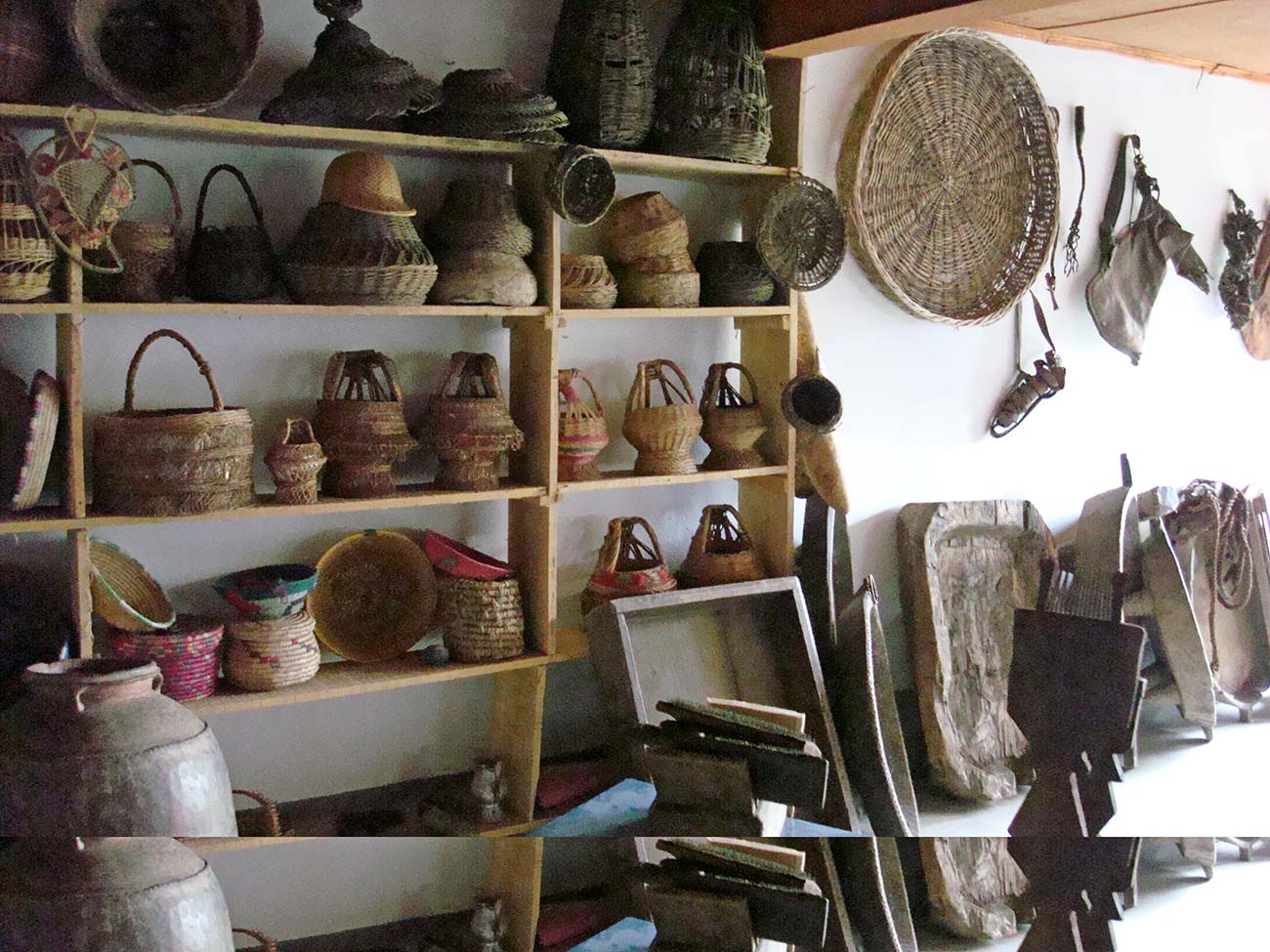Mehjoor lent his poetry to Kashmir’s fight against monarchy and once it was over, he became disgruntled with the political turnout, and died a year before Sheikh Abdullah was dethroned and arrested, writes noted historian Ashiq Hussain Bhat.
Born in 1888 to the Peerzada family of Manzgam in Pulwama, Ghulam Ahmad Shah (Mehjoor) opened his eyes in a religious and literate environment. He received initial education from his father Abdullah Shah and also from Abdul Aala Ganaie Ashiq of Tral. In 1901, he was admitted in Madrasa Nusratul-Islam for receiving primary education but had to leave midway because of straitened circumstances. To make ends meet he was constrained to go to Amritsar to learn calligraphy so that he could earn a living. With the help of Urdu poet Moulvi Abdullah Bismil he got employment as a scribe at Qadian with the newspaper Al Badr.
In 1908 he returned home. Next year he got employed in the State Revenue Department as Shajr-Kash (Patwari) and was posted in Ladakh. On his father’s death, he returned Kashmir perhaps without permission from his officers. Consequently, he lost this job also. Although he was re-employed, his career as Government servant remained chequered because he was removed and reinstated on two more occasions. The result was that he remained poverty-stricken but that could not dampen his spirits as a poetic artist.
By 1911-12 he started writing poetry in Urdu and Kashmiri although he was not much interested in Kashmiri poetry initially (see page 252 History of Kashmiri Literature Naji Munawar and Shafi Shouq).
Mae manun hukmi yaran pyom
Agarchi kashris nish ba bezar
However, by 1915 he had completely turned to Kashmiri poetry.
“Wanteh hai weis bewafaie shewa-eah dildar chha!” was his first ghazal (a lyric poem, of Persian origin, addressed to the beloved). By the time political struggle against feudalism was launched in Kashmir in the early thirties he was the most famous and widely heard poet with eminent personalities as Sheikh Abdullah, Pandit Prem Nath Bazaz, Abdul Ahad Azad as his fans. His poetry was published regularly in Hamdard, a newspaper set up jointly by Sheikh Abdullah and Prem Nath Bazaz. His poetry was romantic rather than socialistic, socialism being the reigning passion of the day. He supported the political struggle right up to 1947.
Ghati tsej gash aao, Valo ha baghwano naw baharuk shan paida kar are some of his famous ghazals written during this time.
Mehjoor supported the conversion of Muslim Conference into National Conference in 1939 and also the embracing of secularism and nationalism by the party. His famous poem on Hindu-Muslim unity reflects the secular ideology adopted by the National Conference.
Nyai travew mai thavew paneh wain
(Bid farewell to discord, develop affection for one another)
Poz muhabat bagraview paneh wain
(Share out true love among yourselves)
Hiund chhu shaker dod chhu muslim saaf saaf
(Hindus be the sugar and milk, the Muslims)
Dod teh shaker milnaview paneh wain
(Let the milk and sugar merge together)
However, being a sensitive and independent-minded person Mehjoor soon got disillusioned with the newly gained independence and fearlessly satirized the terror tactics employed by National Conference.
Yeh azadi chhe kokra jan, Soneh seind thhool kehn travan
Timai keinh thoul heath waun beethhmets prayi azadi
(How nice is this hen of independence, laying some eggs of gold
With the eggs, the independence has sat to brood these)

The disenchantment with what was achieved by Kashmir in 1947 led him to satirize the concept of Independence, as it was called by National Conference.
Yeh azadi che sorugich hur, phera khan i pati khanie
Fakat keinchan garan ander che maran grayei azadi
(the fairy of independence, how shall it enter every home
Selected few are the homes where independence make rounds)
Yeh axzadi che travan mugribus peath rehamtuk baran
Karan saenis zameenus peath tscheri gagrie azaadi
(this independence shower blessings on the west
Our land receives but empty thunders)
Nabir sheikh zanie Kathie hund mani, tus chul khanadariein heath
So lug faryad karnie, tus wupur garih, pyayee azadi
(Nabir Sheikh knows the meaning of the word, as they took away his wife
He laments when independence delivered in another house)
Gareeban warsee karhein, magar cheineh haakimun fursat
Che ratmitch hotelusl munz aaie, lipton chie azaadi
(Poor would have been attended to but leaders have no time
Independence has been held hostage by Lipton tea in hotels)
Lookan pethh azadi gaeyi sethha gob hari-parbat zan
Dapan vanhao panin ahwal asi ma layi azadi
(Independence has gone burdensome on people as if Hari Parbat,
Would have spoken of their condition, afraid are independence may be given them a beating)
The paradox of being caught between the devil and deep blue sea, typical of a common Kashmiri even now was eternalized by Mehjoor sixty years back. The dichotomy of being a Pakistani and Hindustani at the same time has been versified beautifully by Mehjoor
Noonas gayos national wanas
(Went to buy salt, from National’s shop)
Dophom ral hindustanas sethh
(I was asked to join Hindustan)
Thar thar watsm heri-boneh panas
(It shook my whole existence)
Dil chum Pakistanas sethh
(My heart is with Pakistan)
Zoo jan wand hai Hindustanas
(Would sacrifice my soul and body on Hindustan)
Dil Chum Pakistanas seith
(My heart is with Pakistan)
Mehjoor died in 1952 disgusted with the azadi which fell to the lot of Kashmir in November 1947.
















